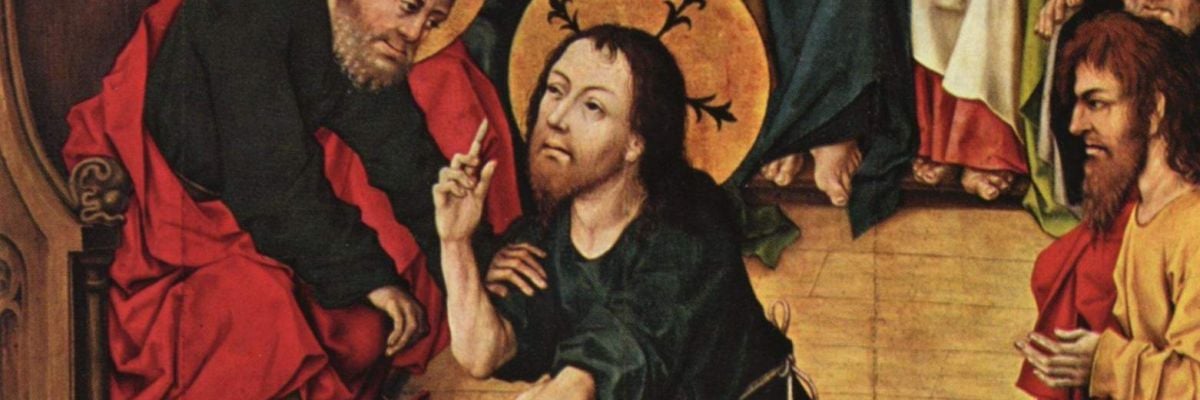
Question:
Answer:
Your priest is confused. Hand-washing on Holy Thursday is not part of the prescribed ritual, nor is it permitted by the liturgical norms. It is an invention. The Code of Canon Law states that “in celebrating the sacraments the liturgical books approved by competent authority are to be observed faithfully; accordingly, no one is to add, omit, or alter anything in them on one’s own authority” (CIC 846 §1). This ritual is symbolic of the command of Jesus in John 13:12-15 (Last Supper). Jesus didn’t wash the disciples’ hands.
When he had washed their feet, and taken his garments, and resumed his place, he said to them, “Do you know what I have done to you? You call me Teacher and Lord; and you are right, for so I am. If I then, your Lord and Teacher, have washed your feet, you also ought to wash one another’s feet. For I have given you an example, that you also should do as I have done to you” (John 13:12-15).
Also:
Jesus was asked by Simon Peter, “Master, are you going to wash my feet?” Jesus answered and said to him, “What I am doing, you do not understand now, but you will understand later.” Peter said to him, “You will never wash my feet.” Jesus answered him, “Unless I wash you, you will have no inheritance with me.” Simon Peter said to him, “Master, then not only my feet, but my hands and head as well.” Jesus said to him, “Whoever has bathed has no need except to have his feet washed, for he is clean all over; so you are clean, but not all.” (John 13:6-10)
The directives for the Holy Thursday foot washing ceremony are contained in the document Paschales Solemnitatis: “The washing of the feet of chosen men [viri] which, according to tradition, is performed on this day, represents the service and charity of Christ, who came ‘not to be served, but to serve’ (Matt. 20:28). This tradition should be maintained, and its proper significance explained” (PS 51).


